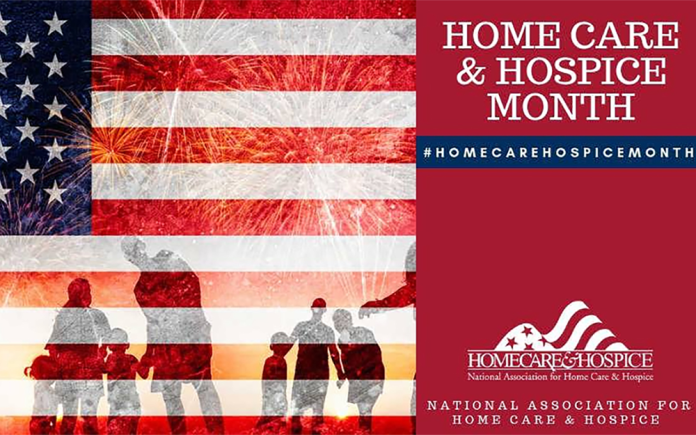
BY RUTH HILL R.N.
Along with Thanksgiving this month, we celebrate National Home Health and Hospice. Home Health services were started on Hudson Street in New York City, in 1895. Hospice was first applied to specialized care for dying patients by Florence Wald, Dean of Yale School of Nursing when she founded Connecticut Hospice in Branford, Connecticut in 1963 which yours truly studied under.
Within the controversial 1982 Tax and Fiscal Responsibility Act, hospice services for terminally ill Medicare beneficiaries became a new benefit with a sunset date of 1986. The program provided a quality model for end-of-life care, which Congress made permanent when the sunset expired. In 1993, President Clinton, as part of his health reform proposal, made hospice care part of the health care continuum, thus expanding hospice to private insurers.
The dichotomy of life-extending vs. end-of-life withholding continues to challenge hospice providers. One effective tool is the expansion, across many States, of the “Physician Orders for Life-Sustaining Care” system, called POLST, or MOLST. These forms, codified in law, require a discussion by a physician. Medical treatment choices are divided into three categories: cardiopulmonary resuscitation; comfort measures at home vs. full treatment in an intensive care unit; and artificial nutrition therapies.
Television has convinced a generation of adults watching “ER” or “House” that “CPR” will save lives 90% of the time. On the contrary, healthy adults have a seventeen percent chance of returning to their previous level of function, and elderly adults with one life-limiting disease have a ten percent chance of leaving the hospital and returning to a previous level of function.
The paradox of end-of-life care is that advances that prolong life: i.e., chemotherapy; less invasive surgery; miracle drugs; and organ transplants; reinforce our death-denying society. Diseases, once death sentences, are now chronic, allowing us to cheat death again. The influx of immigrants, who had government-run medical care in their countries of origin, now want to be recipients of this life-extending care.
Resistance to accepting hospice comes from the myth of giving up life. Our culture today is wedded to every modern treatment for immortality. Some cultures have a religious belief suffering is God’s will. Consequently, one-third of hospice deaths utilize the services for less than 7 days, and only five percent of Hispanic or Latino origin, utilize it at all. This obstacle denies patients advanced treatments in palliative care.
Advances in symptom management have facilitated the relief of horrific suffering experienced at the end of life. Quality cannabis products now in the physician’s palliative toolkit may in some instances help discharge the patient from the hospice program. With the plethora of research on cannabis for chronic diseases, there is no reason for patients in home health or hospice to suffer from the adverse effects of pharmaceuticals.
Nearly eight in 10 Californians say that if they were seriously ill, they would want to speak with their doctor about end-of-life care, but fewer than one in 10 reports doing so, including just 13% of those over 65. Moreover, many seriously ill people spend the last six months of their lives in and out of hospitals, being treated by 10 or more doctors.
While advance directives and living will assign an agent to ensure one’s end-of-life care choices are carried out, they are not binding to physicians; are vague and ambiguous; often not available, lost in some locked box with other legal papers; and tie up precious time needed for the physician to withhold or implement life-sustaining treatment.
As we celebrate the many hospice and home care providers this month let us be thankful, we live in California which is the national center of cannabis for palliative care. With both the UCLA, USC San Diego, and UCSF Cannabis programs, it is becoming easier to find a physician skilled in cannabis.
Learn Cannabis Education, Dosing Without the High on the 1st Saturday of the Month from 11 AM to 1 PM at the Vault Dispensary Lounge. Register Here. send comments to cannaangel16@gmail.com.










































